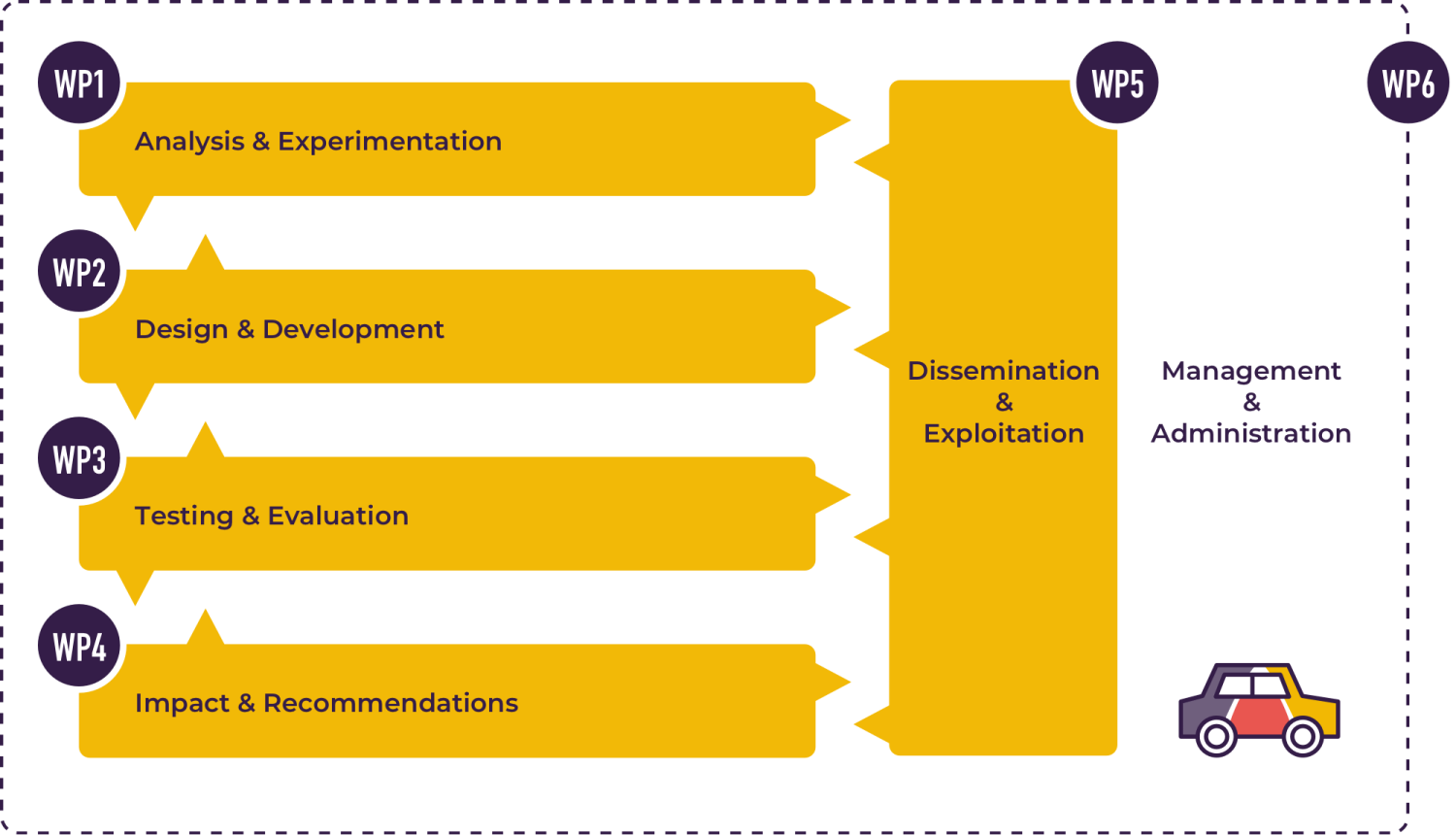Join the community
Go to Linkedin page »
Work Packages
Work Plan
MEDIATOR is organised into four technical work packages (WP1-WP4) as well as a WP on dissemination and exploitation (WP5) and one on project management (WP6).
The four work packages basically follow the four stages from idea to application: analysis, design, evaluation and impact. Due to the iterative nature of the technical work, there are several feedback loops within and between the WPs, creating an agile project organisation.

Work Packages

WP1
WP1 collects, develops and analyses relevant information about the driver, the vehicle, the driving context and their interactions. The output is scientifically validated behavioural and performance markers of the driver and the automated system and functional requirements of the mediator system.

WP2
Using WP1’s output, WP2 works on the technical design and development of the different components of the mediator system and builds a lab prototype of the complete mediator system. The relevant part of the system will be implemented as two in-vehicle prototypes. These two work packages constantly feed back into each other. WP2 ensures that the WP1 output is at the right level of detail, and WP1 helps solve knowledge gaps appearing during WP2 (the design stage).

WP3
WP3 tests and evaluates the mediator system with computer simulations, driving simulators and on-road testing, using the lab prototype and the two in-vehicle prototypes developed in WP2. These evaluations look at the system’s safety effects, its reliability and validity, and the acceptance and user-friendliness of the system and its Human Machine Interface. The results of WP3 feed back into WP2 to enable any required changes, so that WP2 ultimately delivers the final prototypes.

WP4
WP4 focuses on estimating and realising the potential real-world impact of the mediator system on road safety and related impacts on congestion and the burden of injury. The results of the simulator and on-road evaluation studies from WP3 provide WP4’s empirical basis. The work focuses on maximising MEDIATOR’s impact after the project has finished, by translating the knowledge and experiences gained in the project into concrete guidelines, recommendations and protocols related to degraded driver performance, appropriate Human Machine Interface, low-cost lab testing and several legal and organisational preconditions.

WP5
WP5 deals with dissemination, communication and exploitation. The Industrial Advisory Board plays an important role in exploiting the results, ensuring that the concept and prototypes of the mediator system will be embraced and further developed by OEMs and their suppliers. WP5 deploys various activities to ensure that: a) MEDIATOR gets high-quality knowledge input from the other transport mode areas to inform development of the road transport mediator system and b) relevant MEDIATOR output feeds into these other transport modes, paving the way for them to have mediator systems as well.

WP6
WP6 consists of the administrative and financial project management tasks: monitoring progress, internal consistency and scientific quality and ensuring alignment with relevant ongoing scientific research. Scientific quality will be guaranteed by strict quality assurance procedures, as well as the installation of the Scientific Advisory Board. The work package also deals with overarching issues like ethical, privacy and legal requirements, data management and IPR.
